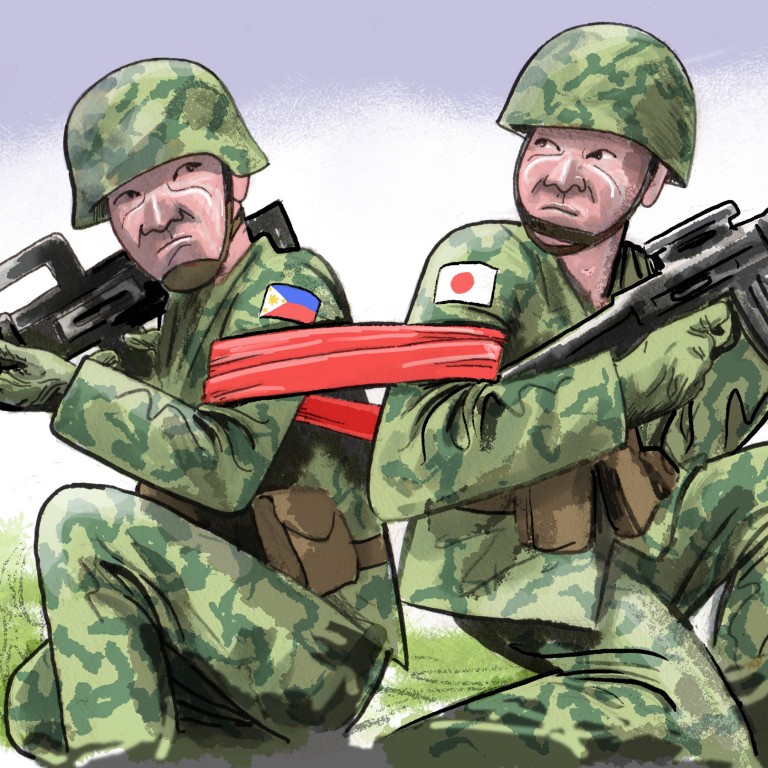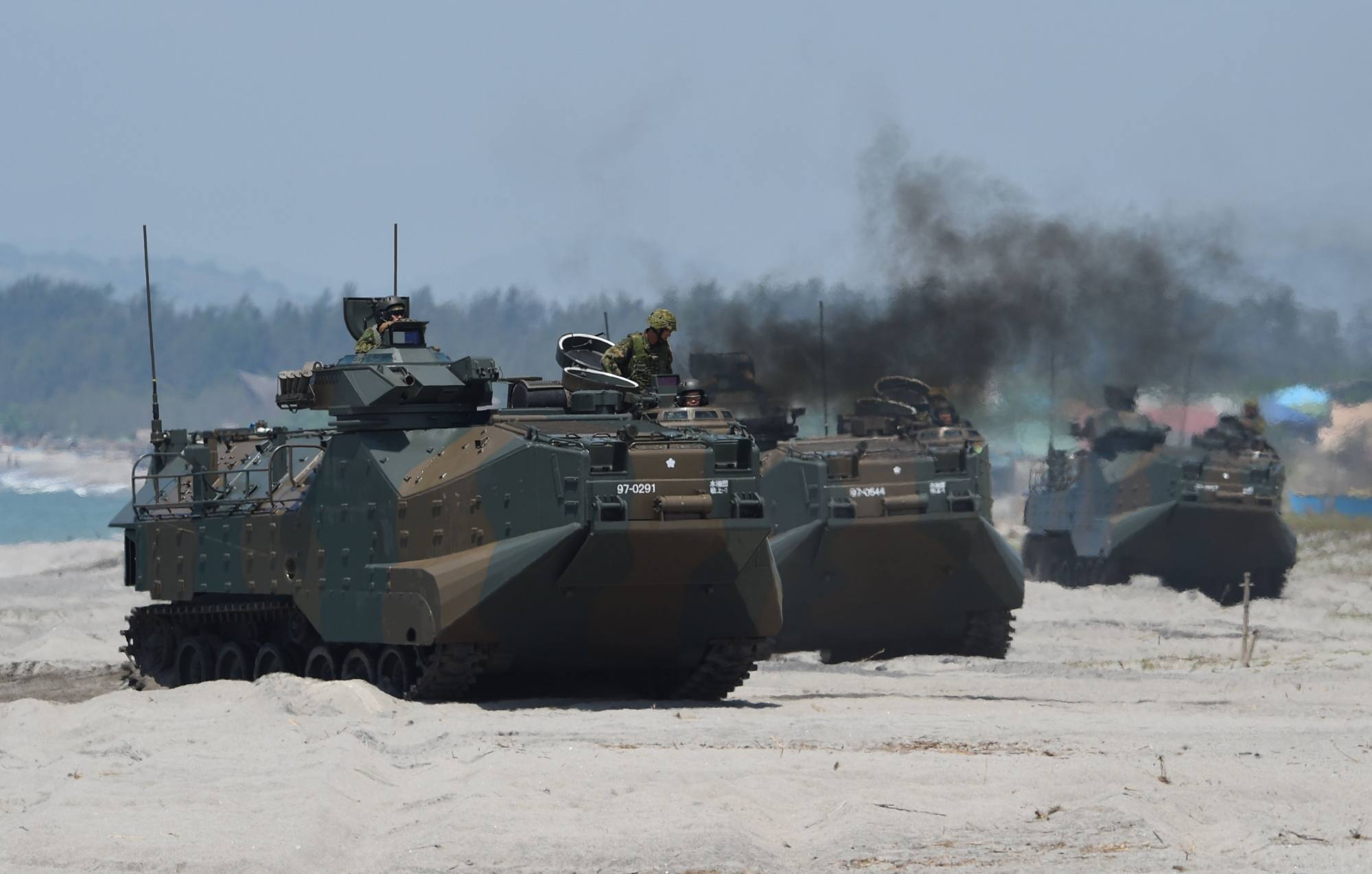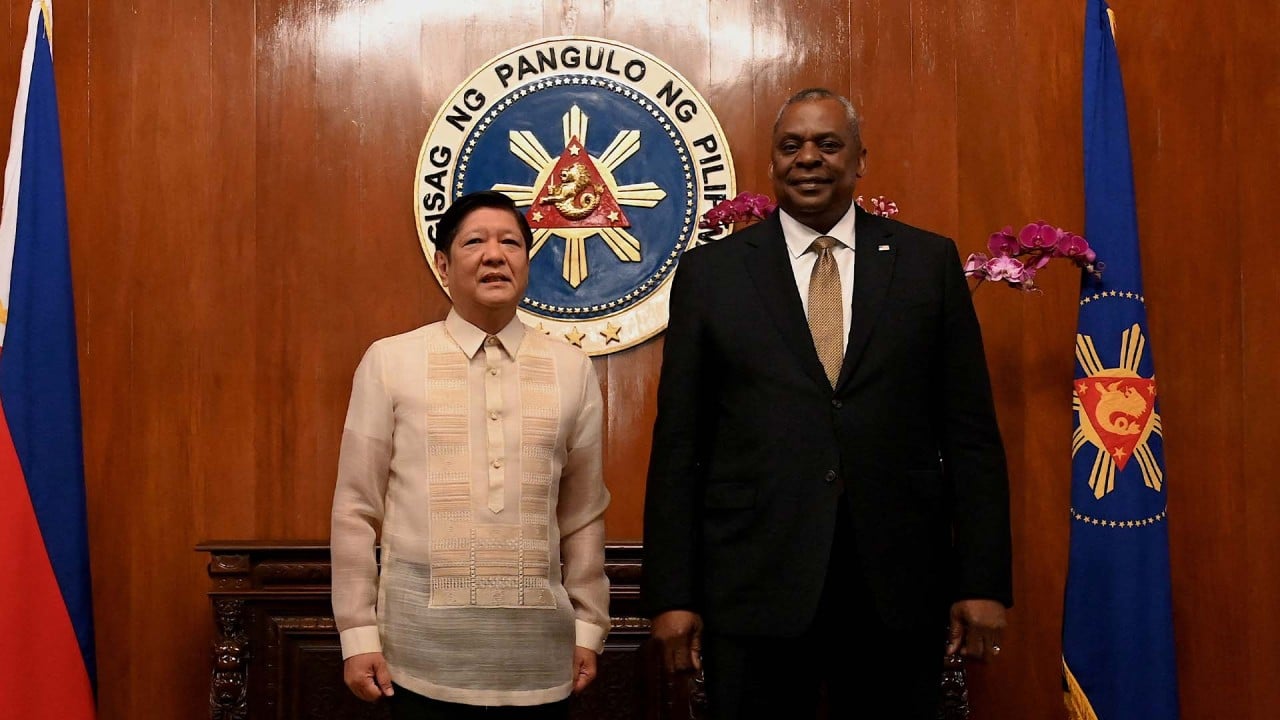
As the Philippines and Japan look to upgrade defence ties, not everyone is enthusiastic about it
- The two countries have enjoyed a steady friendship in the post-war period, bolstered by strong trade, investment and more recently, cooperation in defence
- Yet before they can forge any new military deals, their leaders must contend with pro-Beijing figures in Manila and Tokyo’s pacifist constitution
“Ours is a special friendship whose value is beyond any measure,” declared former Philippine president Rodrigo Duterte during a meeting with then Japanese Prime Minister Shinzo Abe in 2017. Just months earlier, Duterte had thanked Tokyo for “really be[ing] our biggest helper”, underscoring Japan’s status as the largest source of aid and investment in recent years.
Far from an isolated case, Japan has been held in high regard by all contemporary Filipino leaders. Former president Benigno Aquino visited Japan as many as six times during his term in office to expand strategic cooperation.

Historically, the Philippines has had a roller-coaster relationship with Japan. At the dawn of the 20th century, Tokyo served as host to many exiled Filipino nationalists, who fought against both the Spanish Empire and American occupiers.
During World War II, however, Imperial Japan brutalised the Philippines, leaving the country in ruins by the mid-1940s. Throughout the post-war period, Tokyo successfully restored bilateral relations and even backed Manila as host of the Asian Development Bank in the mid-1960s.
No wonder then, Japan has enjoyed generally high trust ratings among Filipinos. Bilateral relations then took a decidedly new direction following President Benigno Aquino’s endorsement of closer military ties with Tokyo amid festering maritime disputes in the South China Sea.

The Philippine ambassador to the US, Jose Manuel Romualdez, who happens to be a direct cousin of the president, has argued that current conditions are “one of the best times” for expanded strategic cooperation, with Japan now “almost at par” with the United States. Nevertheless, any major upgrade in bilateral defence relations is bound to face resistance on three levels.
Philippines wants Australia, Japan to join South China Sea patrols: envoy
In the past, many Filipino senators dragged their feet on signing major defence deals with other US allies, most notably Australia, for similar reasons. Thus, any potential VFA-style deal with Japan, which doesn’t have a treaty alliance with the Philippines, is bound to be opposed with even greater vigour.
China weighs options as Philippines, Japan seek friendlier waters
Finally, Japan also faces challenges at home, most notably Article 9 of Japan’s constitution, which restricts the country’s ability to project military power overseas. Despite a shift in public opinion in favour of amending the constitution, it’s unclear if the current Japanese leadership can overcome divisions within its ranks over the crucial matter, especially from the pacifist Komeito Party.
In short, while Filipino leaders undoubtedly view ties with Japan as “essential”, that doesn’t guarantee smooth sailing for plans to expand bilateral military cooperation.
Richard Heydarian is a Manila-based academic and author of “Asia’s New Battlefield: US, China and the Struggle for Western Pacific”, and the forthcoming “Duterte’s Rise”


